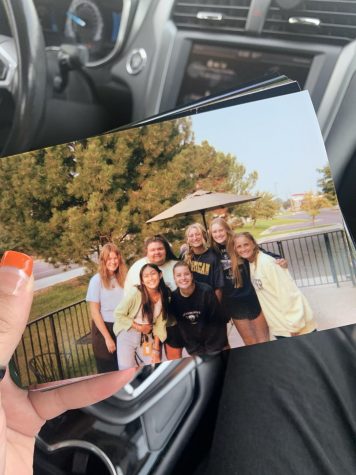Diseased Accountability
We live in a world full of unique difficulties, but one of the greatest challenges facing
many high school students stems from within themselves. Easily the most widespread epidemic
in high schools is that of students not taking accountability for their own learning. “My classes
are too hard!” they cry. “My teacher doesn’t teach me anything! How can you expect me to do
well?”
It comes down to this: students are responsible for their own education. It is not the
teacher’s job to force material down unwilling students’ throats or curve tests so that even the
laziest student passes. If students want to do well, they have to take initiative. They need to go to
class with willing attitudes and open minds. They need to study effectively. Some classes may be
ridiculously hard, but anyone can pass if they put in the required effort.
Writer and producer J. Michael Straczynski said, “People spend too much time finding
other people to blame, too much energy finding excuses for not being what they are capable of
being, and not enough energy putting themselves on the line, growing out of the past, and getting
on with their lives.” Students blame teachers, parents, and other commitments for not doing well,
but they would be better off if they took responsibility for the classes they chose to take and the
activities to which they committed themselves.
When students procrastinate assignments and then blame teachers for assigning too much
homework, whose fault is it really? Choosing to watch Netflix before doing homework is not a
teacher’s fault.
Psychologist Julian Rotter was famous for his idea of locus of control in the 1960s,
examining how much control people believe they have over their lives. Changingminds.org
states, “People with a high internal locus of control believe in their own ability to control
themselves and influence the world around them. They see their future as being in their own
Diseased Accountability Hannah White, Motherlode
hands and that their own choices lead to success or failure. . . . Their belief in their ability to
change things may well make them more confident . . . They will also likely be more motivated
and success-oriented.” We need more students with a high internal locus of control. If students
want to be successful, they need to realize that their future is up to them, as are most things in
their lives.
It is long past time for students to take control of their own lives. Placing all the blame on
a teacher or difficulty of a class only creates a bigger problem that extends beyond high school.
These students will move into careers and try to whine their way to the top, playing the victim
until they die.
This is no easy problem to fix. It comes down to the individual student to make a decision
to take the control he/she has in life. If students simply own up to their responsibilities, they will
be better off in college and the future.





